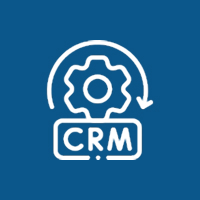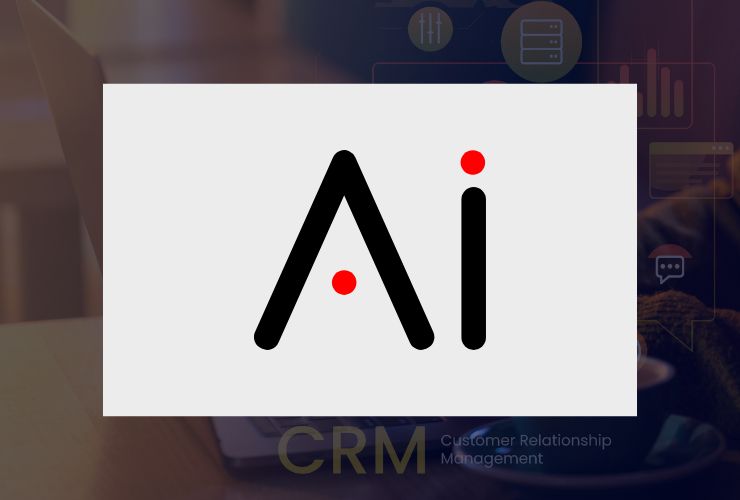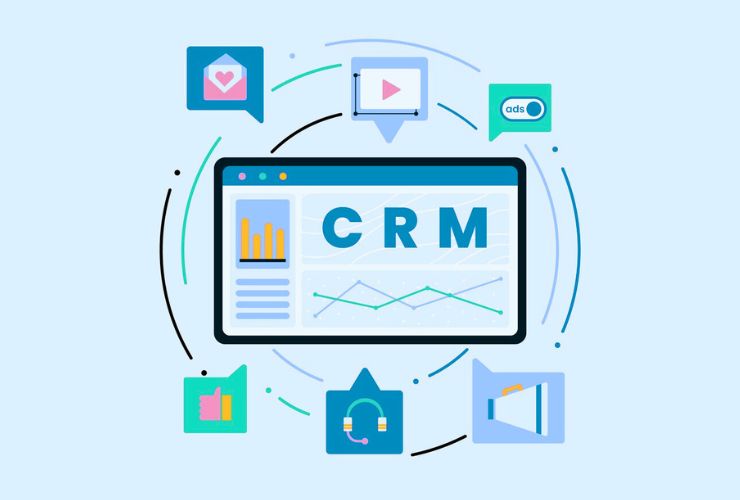A modern CRM (Customer Relationship Management) system is not just a contact management tool in today’s competitive market. It is an important piece of the puzzle as it relates to customer interactions, where it has helped dictate sales strategies and long-term growth. Today, with the scrutiny of customer expectations and exploding digital touchpoints, finding the right CRM can change everything in how your business will interact with clients, accurately track sales performance, and scale your operations as efficiently as possible.
Below are the top 10 features every organization should look for when buying a modern CRM system.
1. 360-Degree Customer View
A modern CRM will centralize data from multiple touchpoints – emails, calls, purchases, service history, and preferences – giving you a unified, real-time view of every customer, allowing your sales, marketing and customer service teams to engage smarter.
Example: A customer’s call comes into your support team with the customer on the line, and your team member can see the entire engagement history so that they can deliver the support without asking the customer to repeat themselves, and help come to the fastest, personalized solution.
2. Automation of Marketing-Sales (and customer service) Activities
Slow growth is often a sign of manual processes. CRMs come with automation tools to remove repetitive tasks from the process in the sales cycle, such as sending follow-up emails, assigning leads, scheduling calls, or tracking deals.
Benefits of automating repetitive activities for your team:
- Save Tim to do the important work instead of admin work.
- Enhance lead nurturing by sending a personalized email sequence.
- Reduce response times and improve customer engagement.
3. Customizable Dashboards and Reports
Each business has different KPIs. Modern CRM’s allow you to customize dashboards and reports from the data you value the most, (e.g. pipeline value, churn, ROI from campaign, etc.).
4. Integration Capabilities
A CRM shouldn’t just work with itself. It should integrate with any other tools you may already have in place, (e.g. marketing tools like mailchimp, support tools like zendesk, accounting tools like QuickBooks, bonet systems like SAP, etc.).
Importance- Unified systems prevent data silos and create a smoother workflow between departments.
5. Mobile Access
Business happens everywhere. Your CRM should be able to support a higher level of mobile functionality. Whether updating a deal after a meeting, accessing customer details while commuting or getting push notification for new tasks.
Why it matters- Being able to update deals in real time and access customer records while not at your desk increases productivity and better informs decisions.
6. AI and Predictive Analytics
AI-powered CRM’s will do much more than store data, it turns data into insights! AI can help predict customer churn, what next best/how to engage with the lead or customer, and so on. This can significantly help support improvement in marketing and sales.
For example: AI scores leads by engagement and behavior and then tells a sales team who to call first given their odds of conversion.
7. Easy-to-Use Interface
A big factor in CRM adoption is usability. If it is unmanageable or too complex, your employees will never want to use it. You want to see simple interfaces, minimal clicks to accomplish tasks, drag-and-drop features, and friendly navigation.
Benefits: Faster onboarding of employees, increased productivity among the team, and better usage of aspects of the CRM.
8. Security and Compliance
You have legal obligations around any sensitive customer data. Look for:
- Role-based permissions
- Data encryption
- Activity logging
- Global compliance (GDPR, HIPAA, etc.)
Keep this in mind: a security breach can cost you revenue and credibility.
9. Omnichannel Communication
Customers today interact with companies on so many different channels—email, social media, chat, phone, and webforms. A good CRM will consolidate all messages and engagement into a singular component so that none of them get lost.
Benefits: Your sales team and support team can communicate consistently to resolve problems faster.
10. Scalability and Customization
Your CRM will need to change as your business changes and grows. Whether you are a startup or scaling to an enterprise, it has to be able to:
- Add new users
- Add Custom fields and modules
- Use industry-related extensions or plugins
Pro Tip: Cloud-based CRMs allow different degrees of growth with minimal infrastructure investment.
Conclusion
Selecting a CRM is not just about making a technical choice, it’s about making a business choice. The right CRM gives your team access to the information they need, supports customer experience, and accelerates business growth. When weighing the features above, consider investing in a CRM that best positions your business today, while also allowing you to be adaptable for tomorrow.
Regardless of whether you’re upgrading from one CRM to another, or using a CRM for the first time, it is more important that you focus on the features that will create longer lasting value, adaptability, and a user-friendly process for you and your clients.
Custom CRM Development Services To Meet Your Business Needs
Empirical Edge Inc. specialize in building a CRM process that is powerful, scalable, and user-centric to help streamline processes, increase customer engagement, and grow your business. Some of your options may involve upgrading your existing CRM or developing a new CRM from the ground up. If your need is uniquely customized, we build a tailored CRM that will meet your business requirements and process.
Our CRM Development Services
- Custom CRM: Developed from the ground up with your business requirements in mind.
- CRM Integration Services: Integrates with your current systems from ERP to marketing platforms and third-party API’s.
- Supporting & Maintenance Services: We’ve got your back by providing monitoring, address bugs, and new feature availability.
Upgrade your customer relationships with a powerful, scalable CRM tailored to your business needs—partner with experts to streamline processes, boost engagement, and accelerate growth.
Frequently Asked Questions
A modern CRM system is more than contact storage—it centralizes customer interactions, supports sales strategies, and helps businesses scale efficiently.
It combines data from emails, calls, purchases, and service history to give teams a unified, real-time understanding of each customer for smarter engagement.
Automation removes repetitive tasks like follow-ups, lead assignments, and scheduling, saving time and improving customer engagement.
Yes, strong integration capabilities connect CRM with marketing, support, and accounting tools to prevent data silos and streamline workflows.
A scalable CRM can add users, customize modules, and support extensions, allowing businesses to grow without major infrastructure changes.











